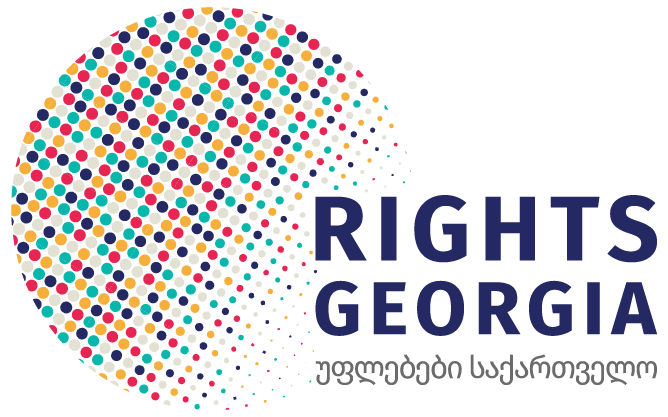The portal was created with the financial support of the United Nations High Commissioner for Refugees in Georgia. The information published on the portal does not represent the opinion of the United Nations High Commissioner for Refugees.
Frequently Asked Questions (FAQ)
-
The status of stateless persons as well as the aim of reducing statelessness are echoed by two important conventions of the United Nations: The Convention Relating to the Status of Stateless Persons and the Convention on the Reduction of Statelessness.
Regarding Georgian legislation, issues related to statelessness and the legal status of stateless persons are regulated by the Constitution of Georgia, the Law of Georgia on the Legal Status of Aliens and Stateless Persons; by the Organic Law of Georgia on Georgian Citizenship, by the Ordinance of the Government of Georgia №523 (1 September 2014) on Approval of the Procedures for Determining the Status of a Stateless Person in Georgia and other related acts.
-
The status of a stateless person is granted to the person whose Georgian citizenship is not established and s/he is not deemed as a citizen of any other state according to their respective national legislation. The right to request the status of a stateless person belongs to any person residing in Georgia notwithstanding of her/his lawful stay in Georgia and against whom the decision on expulsion has not been delivered. Any legally capable person has a right to apply for granting a status. The issue related to the person under 18 years old is proceeded based on the application submitted by her/his legal representative.
-
For the purposes of granting the status, a person should apply to the legal entity under public law operating within the Ministry of Justice - Public Service Development Agency. The application should be accompanied by the following documents:
- 2 photos measured ¾;
- Identity document issued by a foreign country or travel document (in case of their existence);
- Any other document that can prove the fact of the status seeker is stateless.
-
Application on status determination should be reviewed and the decision should be delivered within a 6-month period from submitting the application. For the purposes of gathering information/documents in order to identify the important circumstances for processing and deciding the application on status determination, the Agency is authorized to prolong the time limit by no more than 3 months. The total length of the procedure for granting or refusing to grant the status by the Agency should not exceed 9 months.
-
The status seeker can be refused to be granted a status if:
- S/he was determined as a citizen of Georgia or of another country;
- S/he submitted forged documents or false information regarding the important circumstances for status determination;
- There is the conclusion of the Agency on her/his presence in Georgia not being appropriate for the protection of state and/or public security interests;
- Identification of a person is not possible;
- There are following circumstances enshrined by the UN Convention on the Status of Stateless Persons ((1) persons who are at present receiving from organs or agencies of the United Nations other than the United Nations High Commissioner for Refugees protection or assistance so long as they are receiving such protection or assistance; (2) persons who are recognized by the country in which they have taken residence as having the rights and obligations which are attached to the possession of the nationality of that country; (3) persons with respect to whom there are serious reasons for considering that: (a) They have committed a crime against peace, a war crime, or a crime against humanity; (b) They have committed a serious non-political crime outside the country of their residence prior to their admission to that country; (c) They have been guilty of acts contrary to the purposes and principles of the United Nations).
-
Stateless persons in Georgia exercise the following rights:
- Equality before the law
- Acquisition of Georgian citizenship
- Right to investment and business activity
- Right to work
- Right to healthcare
- Right to social security
- Property and non-property rights
- Right to education
- Right to use cultural values
- Marital and family relations
- Freedom of speech, opinion, conscience, religion, and belief
- Freedom of movement and residence
- Guaranteeing personal rights of aliens
- Protecting the rights of stateless persons
- Right to Assembly and Manifestation
- Granting asylum
A person having the status of stateless person in Georgia may not establish or become members of and participate in the activities of any political associations in Georgia;
A person having the status of stateless person in Georgia may not vote in elections or be elected to municipalities and to central government bodies, or participate in referenda;
A person having the status of a stateless person in Georgia shall not be obliged to serve in the defense forces of Georgia.
-
“Rights Georgia” provides free-of-charge legal assistance on statelessness issues for stateless persons or persons seeking the status of a stateless person.
To receive free legal assistance/consultation, a hotline is available for interested persons: +995 593 111 405.
To get information, you can also contact us by e-mail at office@rights.ge, on the “Rights Georgia” Facebook page - facebook.com/rights.ge or to visit us at the legal aid office at the address - Tbilisi, Akaki Ghakhokidze Street №11A.
-
A stateless person is a person who is not considered a citizen by any state. Statelessness means difficulty in accessing basic human rights and freedoms and the impossibility of their proper realization. Consequently, stateless persons face many daily problems and challenges, in various spheres of life.
In statelessness, people are limited in their ability to live freely, obtain residence permits, own and dispose of property, and move and travel freely. Access to health services and education is also a challenge for them. Stateless persons may also face many challenges related to family life.



